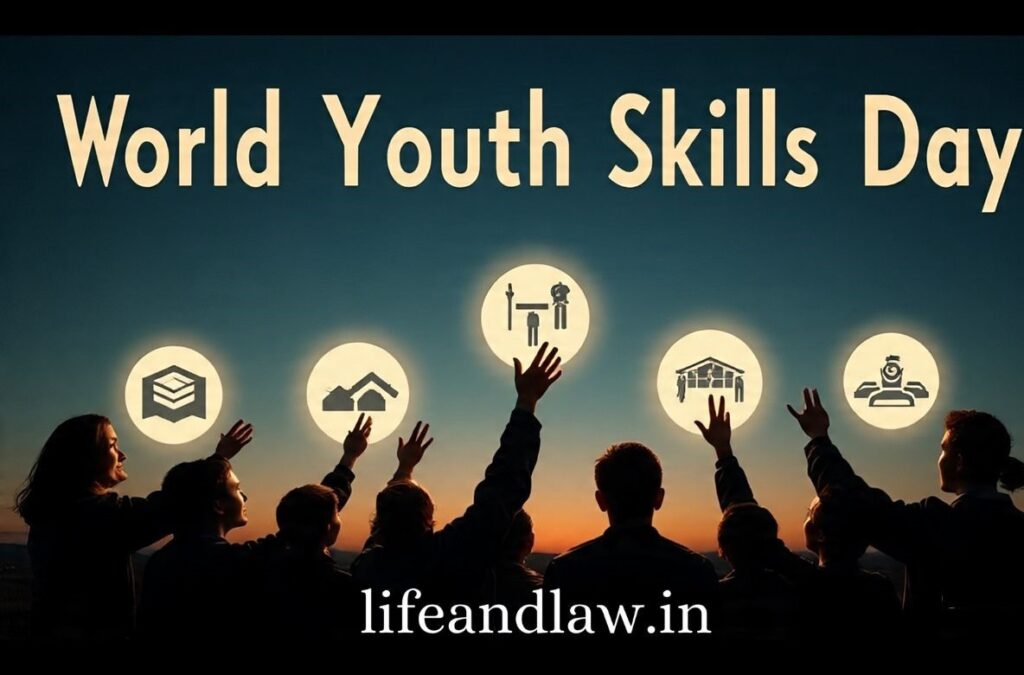Trending

In a world marked by rapid change and rising inequality, young people are stepping up—not simply with creativity and enthusiasm, but also with the ability to influence the structures that surround them. World Youth Skills Day, marked annually on July 15, celebrates the significance of providing youth with skills for employment, dignified work, and entrepreneurship.
This article attempts to emphasize an important but frequently disregarded aspect of youth development: legal and civic skills. These tools not only help young people understand their rights, but also allow them to lead justice-driven change in their communities. We shed light on how adolescents are turning skills into justice—and justice into long-term impact—by investigating real-world examples, global frameworks, and the work of advocates such as Adv. Abdul Mulla.
When we think about skill development, we frequently associate it with digital literacy, entrepreneurship, or vocational training. However, legal skills—the ability to grasp rights, navigate legal institutions, and advocate for justice—are equally important. Legal knowledge is more than just academic to young people, particularly those from vulnerable communities. It is a lifeline.
Legal skills for youth may include:
Understanding fundamental rights and laws.
Developing advocacy skills in public spaces.
Engaging in public speaking and discussion.
Understanding policymaking processes.
Take part in mock courts, youth parliaments, or legal assistance projects.
These abilities foster knowledgeable citizens and community leaders. More significantly, they raise a generation that examines and reforms regulations as needed.
Across the globe, young people are not just waiting for change; they are creating it. From small initiatives to global movements, young people are using their legal knowledge and civic voice to fight injustice.
Consider climate justice activism. Youth leaders such as “Greta Thunberg” have not only mobilized millions, but have also taken legal action—filing grievances with the UN and utilizing international law to hold governments accountable.
In many places, young legal interns and student volunteers collaborate with non-governmental organizations to provide basic legal assistance in disadvantaged areas. In South Africa, youth paralegal programs have given teens the ability to help resolve local issues. In India, student-run legal literacy camps in rural areas are increasing awareness of women’s rights, education legislation, and government services.
These examples demonstrate a clear trend: young people are transitioning from awareness to action, from understanding their rights to enforcing and expanding them.
Legal empowerment is especially important for marginalized youth—those who face structural barriers based on gender, caste, race, disability, or location. For these groups, legal abilities are more than just advocacy; they are about survival and dignity.
Indigenous adolescents have been able to resist illegal encroachments thanks to programs that teach them about their land rights. Refugee youth who have been schooled in basic legal skills are advocating for education and asylum reform. LGBTQ+ adolescents, armed with knowledge of constitutional rights, are participating in policy consultations and court interventions.
Importantly, youngsters are also using internet channels to raise legal knowledge. Instagram reels detailing voting rights, TikTok explainers on legal consent, and YouTube videos breaking down constitutional rights—these are modern civic tools used wisely by Generation Z to educate and engage.
The global society recognizes the value of youth-led justice. Sustainable Development Goal 16 asks for “peace, justice, and strong institutions,” with an emphasis on universal access to justice. The UN Youth Strategy clearly encourages youth involvement in public affairs and access to quality education, especially civic education.
UNESCO and UNDP have created programs to incorporate legal and human rights education into youth empowerment initiatives. Many governments have followed suit, including civic education into school curricula, establishing youth justice fellowships, and funding legal assistance projects led by young professionals.
To truly assist this transition from skills to justice, we require collaboration across sectors:
Educators can integrate legal studies and civics into school curricula.
Legal professionals can mentor adolescents and support legal literacy initiatives.
Governments can support youth-led justice initiatives and encourage inclusive policymaking.
Youth can get involved in student unions, legal internships, and policy debates—or simply learn about their rights.
On this World Youth Skills Day, it is critical to acknowledge the significance of legal and civic skills in empowering youth to effect genuine change. Young people today are using these abilities to confront injustice, influence laws, and speak for their communities—not simply preparing for the future, but changing it.
Adv. Abdul Mulla, through his platforms www.asmlegalservices and www.lifeandlaw.in, is dedicated to making legal information available and actionable to young changemakers. By providing youth with legal skills and guidance, he contributes to a more just and informed society.
Adv. Abdul Mulla (Mob. No. 937 007 2022) is a seasoned legal professional with over 18 years of experience in advocacy, specializing in diverse areas of law, including Real Estate and Property Law, Matrimonial and Divorce Matters, Litigation and Dispute Resolution, and Will and Succession Planning. read more….
Copyright BlazeThemes. 2025